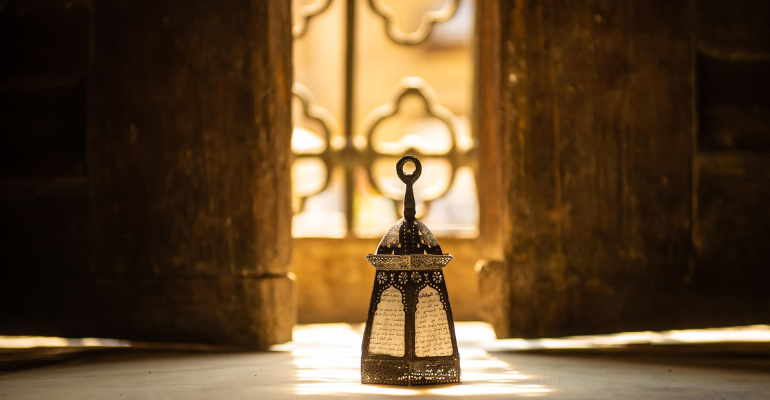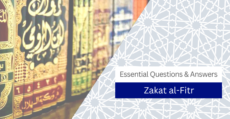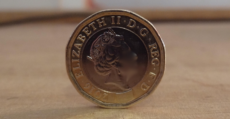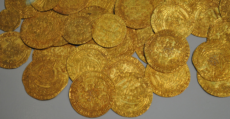In the name of Allāh, ar-Raḥmān (the Most Merciful), Ar-Raḥīm (The Bestower of Mercy).
Your Niyyah (intention).
For obligatory fasts, an intention must be made before the beginning the fast.
The Prophet ﷺ said,
Whoever does not intend to fast before dawn, there is no fast for him. [Abu Dawūd]
For Nafl (encouraged) fast, the intention can be made any time during the day, as long as a person has not already eaten or done something which invalidates the fast.
The intention is in the heart, and verbalising it is a Bid’ah.
Remember why you fast.
The purpose of fasting is {so you may attain Taqwa (piety)} [02:184]
We have been ordered to abstain from Ḥalāl things during the fast, such as food and drink, it is even more important therefore to abstain from Ḥarām matters.
The Prophet ﷺ said,
Whoever does not abandon false speech and evil actions, Allāh is not in need of his (fasting) leaving his food and drink. [al-Bukhāri]
Who is permitted to not fast?
- A traveller is not obligated to fast but has a choice to do so.
- A child under the age of puberty: a child above 7 should be gradually trained to fast.
- A person who is unable or medically advised against fasting due to:
- Weakness due to old age.
- A pregnant or breastfeeding mother who fears for her health or the health of her child.
- A woman on her menses, or suffering from post-natal bleeding.
Know what breaks your fast.
- Eating and drinking intentionally.
- Sexual intercourse.
- Discharge of semen due to a voluntary action out of desire.
- Nutritional therapy inc. injections containing nutrition, IV drips, vitamin drops etc.
- Excessive bleeding such as cupping.
- Vomiting intentionally i.e. inducing vomit. [Ibn Mājah]
- Menstruation and post-natal bleeding.
Know what does not break for fast.
- Eating or drinking forgetfully.
- Involuntary discharge of semen such as a wet dream.
- Any injection which does not provide nutrition such as local anaesthetics, or medicine not taken orally.
- Small amounts of bleeding such as a gum bleed, nose bleed or blood given for analysis.
- Unintentional vomiting
- Using inhalers or insulin.
- Being in a state of major impurity during Sūḥūr.
Delay your Sūḥūr and hasten your Iftār.
It is encouraged to delay the Sūḥūr within it and hasten the Iftār within its time.
Delaying the Sūḥūr means, having your meal before Fajr. Hastening Iftār means simply breakfast the fast immediately after Maghrib, not necessarily having a full meal.
The Prophet ﷺ said,
My people will remain upon goodness as long as they hasten to break their fast (Iftār) and delay their Sūḥūr (within its time).
Break your fast with dates and water.
The Prophet ﷺ would “break his fast with fresh dates. If there were no fresh dates, then with dry dates. If there were no dry dates, then with some sips of water. [Abu Dawūd]
Water is for immediate hydration, and dates provide easily absorbable nutrition: high in natural sugar, fibre, minerals, phytonutrients, and other minerals such as potassium, magnesium and iron. [1]
Women spending all day in the kitchen.
If a woman organises her time, and the family makes a conscious decision to eat simple foods, she will be able to fulfil her duties towards her Lord as well as her family. In this manner, she attains two great rewards: the reward of feeding people who are fasting, and the reward for worship in Ramadān.
The Prophet ﷺ said,
Whoever gives Iftār to a fasting person will have a reward like his, without that detracting from the reward of the fasting person in the slightest. [at-Tirmidhi]
Making up missed fasts?
Missed fasts are covered in one of two ways:
- Qadā: The number of days missed are fasted any time before the next Ramadān. This is for a traveller, an ill person, a woman who was in her menses or a woman who missed fasts due to pregnancy or breastfeeding.
- Fidya: A poor person is fed for every day missed. This is for an ill person whose illness is long-term, an elderly person who is too weak to make up fasts, or a mother who has missed a number of years due to pregnancies, childbirth and breastfeeding.
Written by the one in need of the mercy of his Lord
Abul Abbaas Naveed Ayaaz
Nelson, Lancashire
10th Sha’ban, 1444h.
Corresponding to 2nd March 2023.
Footnotes
[1] https://www.healthline.com/nutrition/benefits-of-dates





